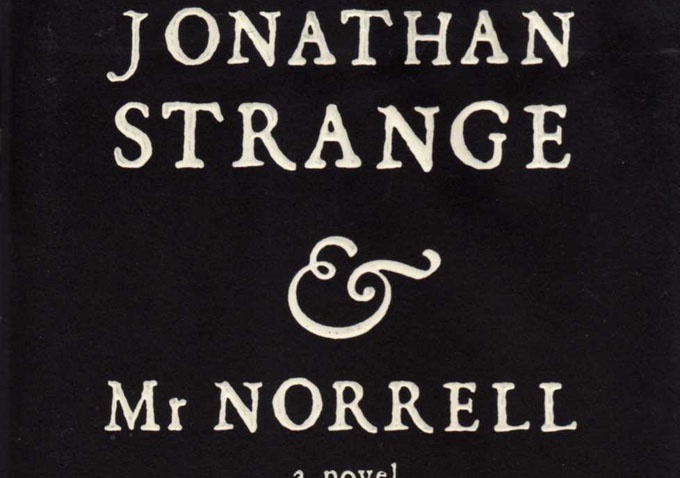 I'm not a fantasy fiction buff by any stretch, but in 2004 it was hard to ignore the mammoth accomplishment of Susanna Clarke's "Jonathan Strange And Mr. Norrell." A wildly original and inventive epic, running nearly 800 pages, the work was one of the few to crossover to the mainstream, becoming a critical darling and a best-seller. Its dazzling weaving together of history, magic, romance and more (combined with David Foster Wallace style footnotes) made it one of the most unique reading experiences in a long time. It would no doubt be a difficult text to adapt, but BBC is going to give it a try.
I'm not a fantasy fiction buff by any stretch, but in 2004 it was hard to ignore the mammoth accomplishment of Susanna Clarke's "Jonathan Strange And Mr. Norrell." A wildly original and inventive epic, running nearly 800 pages, the work was one of the few to crossover to the mainstream, becoming a critical darling and a best-seller. Its dazzling weaving together of history, magic, romance and more (combined with David Foster Wallace style footnotes) made it one of the most unique reading experiences in a long time. It would no doubt be a difficult text to adapt, but BBC is going to give it a try.
Peter Harness ("Wallander") will be penning a six-part series based on the book, and that may be the best way to tackle the story. We'll do our best to summarize: in the early 1800s, magic is thought to have died out when Gilbert Norrell appears and stuns folks by praticing the dark art. The younger Jonathan Strange becomes his pupil and they both rise in fame until an ugly, very public split that pits them against each other. Now toss in the Napoleanic Wars, another subplot set in a parallel fairy world and now you can see why this is a tricky one to tackle. Deadline's report seems to suggest it will focus on Strange and Norrell's magic battles during the war, which makes up a good chunk of the book, but we hope some space is left for other story elements as well. Toby Haynes ("Doctor Who," "Sherlock") will wrangle it all in the director's chair.
An attempt was made by New Line to bring to the big screen with a script by Christopher Hampton ("A Dangerous Method," "Atonement") back in 2005/2006, and he did turn in a draft for a single movie but we can't imagine how that would've worked without gutting a lot of Clarke's story. Julian Fellowes was apparently going to take a stab at it but then New Line collapsed and their option ran out. Frankly, this format is the best way to go and given that 'Strange' is exceedingly English in both its language (the book uses a lot of archaic argot to often humorous effect) and manners, the BBC is a good fit. This is one work that is certainly beloved by many and folks will be watching closely. There are a lot of ways for it to south, but the material is so good that even if it gets it 75% right it could be a great piece ot television. [Deadline]

